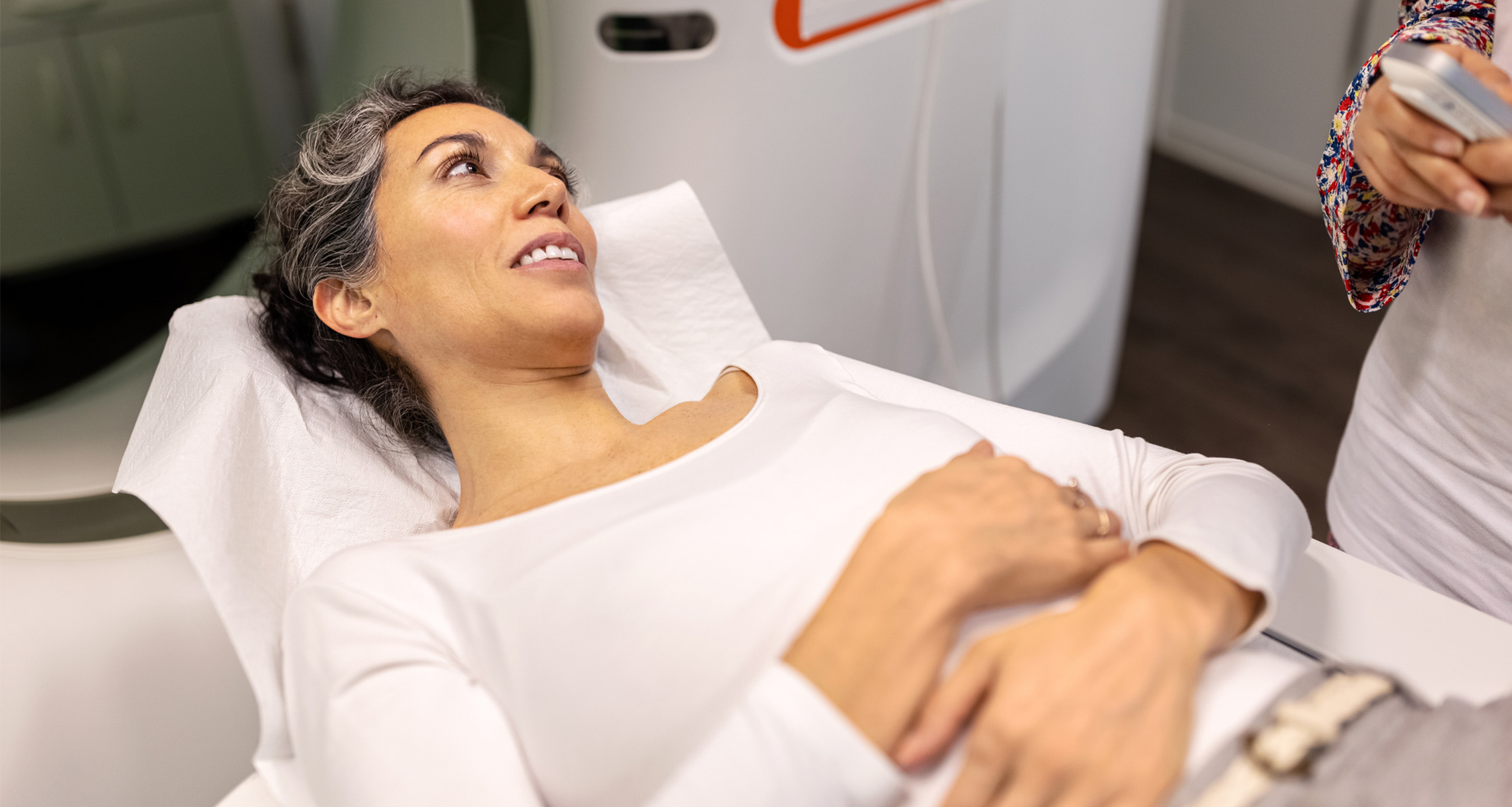Uterine cancer is the most common form of gynecological cancer, affecting more than 800,000 people in the United States.
Uterine cancer is the most common form of gynecological cancer, affecting more than 800,000 people in the United States. The number of women who develop uterine cancer each year is increasing, and like many other cancers, treatment is most effective when it’s detected early. 60% of endometrial cancers (a type of uterine cancer) can be prevented.
Learning more about uterine cancer, its symptoms and your risk for developing it can help you manage your gynecological health.
What Is Uterine Cancer?
Uterine cancer, also known as endometrial cancer, is cancer that forms in the tissues of the uterus. There are two types of uterine cancer: endometrial cancer, the most common type, which begins in the cells lining the uterus, and uterine sarcoma, which is a rare cancer that begins in the muscle of other tissues in the uterus.
What Are the Symptoms of Uterine Cancer?
Symptoms of uterine cancer can include:
- unusual vaginal discharge,
- abnormal bleeding, such as heavy bleeding, bleeding after intercourse, bleeding between periods or any bleeding (even just a dab of blood) after menopause, and
- abnormal pain, pressure or discomfort in your pelvis.
Uterine cancer is usually treatable, especially when it’s detected early, so it’s important to pay attention to your body and know what’s normal for you and what isn’t.
Uterine cancer is not tested for during routine exams, like a Pap smear. If you’re experiencing any of the symptoms above, reach out to your health care provider right away. Recently, new tests for diagnosis from blood protein and vaginal chemicals and cells have improved early diagnosis.
What Are the Risk Factors for Uterine Cancer?
It’s impossible to know for sure who will develop uterine cancer, but here are some risk factors to consider that could reduce your risk significantly:
- Age – Women over 50 are at increased risk. Uterine cancer most commonly affects women who have reached menopause or after, but women can develop it at any age.
- Obesity – Fatty tissue in people who are overweight produces additional estrogen, which can increase your risk for uterine cancer, causing up to 34% of cases.
- Family history of cancer – Having a close relative who has had uterine, colon or ovarian cancer increases your chances of developing it. Although rare, Lynch Syndrome causes 3% of uterine cancer, but a person with this syndrome has a 40-60% chance of developing this cancer.
- Hormone therapy – Taking estrogen (without progesterone) for hormone replacement therapy during menopause can disrupt the normal growth and shedding of the uterine lining and reduce your chance of cancer by 34%, even 30 years after stopping the medicine.
- Difficulty getting pregnant – If you have had trouble getting pregnant or have had fewer than five periods in a year before starting menopause, you may be at increased risk.
- A genetic mutation – Certain genetic mutations can raise your risk for uterine cancer, including BRCA1, BRCA2, or one associated with Lynch syndrome.
- Certain drugs – Tamoxifen, taken to prevent and treat certain types of breast cancer, can increase your risk for uterine cancer. Aspirin can reduce your chance by 8-11% and up to 20-44% if you are obese.
In addition to these risk factors, there is a significant racial disparity when it comes to uterine cancer. Studies have found that Black women are more likely to be diagnosed with uterine cancer and die from it than women from other racial or ethnic groups. Various racial groups have increased risk of uterine cancer, although this difference may be from socio-economic differences. This is another reason why it’s so important to know your body, your risk factors and the early warning signs of uterine cancer.
How Can I Prevent or Treat Uterine Cancer?
There is no specific way to prevent uterine cancer but you can make some lifestyle choices that may help reduce your risk, including:
- Maintaining a healthy weight
- Being physically active
- Taking progesterone, if you are taking estrogen
If you’re diagnosed with uterine cancer your health care provider will discuss your treatment options with you, including the risks, benefits and side effects of each option. Your treatment may depend on the kind of uterine cancer you have and how far it has spread. Treatments may include:
- Surgery
- Chemotherapy
- Radiation therapy
- Targeted therapy like immunotherapy
What Resources Are Available?
- Veterans have access to primary and gynecological care at the Department of Veterans Affairs (VA), including routine Pap smears and HPV vaccines. Veterans can also get tests such as an ultrasound or a biopsy to detect or rule out cancer. Women Veterans Program Managers at your local VA can help you schedule the care and screenings you need.
- You can also call, text or chat online with the Women Veterans Call Center at 855-829-6636 to get help enrolling in VA health care, finding available resources and services in your area, and much more.
- VA offers mental health treatment and support for women Veterans who may be struggling emotionally or mentally with the effects of a cancer diagnosis. Reach out and learn about treatment options that may be right for you.
- The Centers for Disease Control and Prevention (CDC) has several resources related to uterine cancer, including this helpful fact sheet.
- The Endometrial Cancer Action Network for African-Americans is a group of women who have joined to create a support network for African-American women affected by endometrial cancer.
Stay aware of your gynecological health. Talk to your health care provider about your risk factors for uterine cancer, as well as any unusual symptoms you may have.







